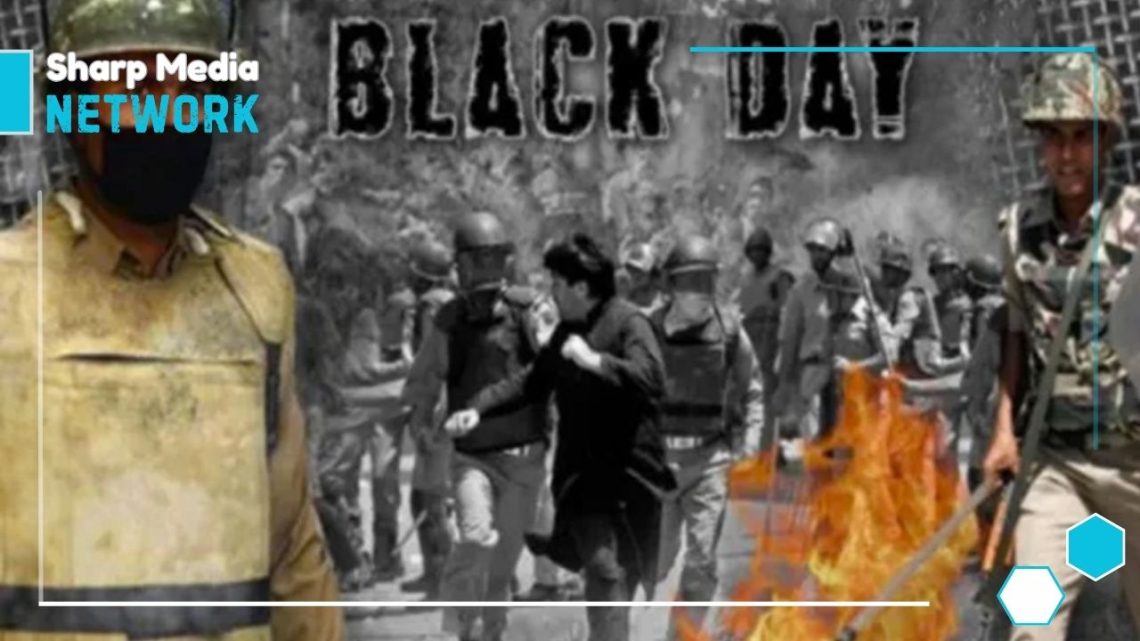
IIOJK Plans to Observes Black Day on India’s Republic Day Amid Heavy Military Presence
January 20, 2025As India prepares to celebrate its Republic Day, Kashmiris across the globe will mark the occasion as ‘Black Day,’ a powerful protest against India’s ongoing denial of their right to self-determination.
This protest is a powerful reminder to the international community of India’s ongoing denial of Indian Illegal Occupied Jammu and Kashmir’s (IIOJK) right to self-determination. In the lead-up to the day of protest, Indian forces have heavily fortified Srinagar and other parts of IIOJK, a region that remains under what many consider illegal occupation.
Ahead of the planned shutdown called by the All Parties Hurriyat Conference (APHC), authorities have made a significant military deployment across Srinagar. The Indian Army, along with the police and paramilitary Central Reserve Police Force (CRPF), is stationed throughout the city to ensure control and prevent large-scale protests. The streets of Srinagar are filled with armored vehicles and armed personnel patrolling key areas. This heightened security presence is intended to deter any demonstrations that could disrupt India’s Republic Day celebrations.
For Kashmiris, India’s Republic Day holds no cause for celebration. According to APHC spokesperson Adv. Abdul Rashid Minhas, India has no right to observe the day as a national holiday while it continues its military occupation of IIOJK. He stressed that India’s actions deny Kashmiris their fundamental right to self-determination, a right recognized under international law but consistently denied by the Indian state.
The protest, observed on both sides of the Line of Control (LoC) and by Kashmiris across the globe, serves as a stark reminder of the region’s long-standing struggle. It emphasizes the demand for Kashmir’s right to decide its political future without external interference.
The APHC spokesman also took the opportunity to pay tribute to those who lost their lives in the infamous Gaw Kadal massacre on January 21, 1990. Over 50 civilians were killed and hundreds more were wounded when Indian forces opened fire on peaceful protesters in Srinagar. This tragic event is etched in the collective memory of Kashmiris as a symbol of India’s military repression in the region.
Minhas also compared the Gaw Kadal massacre to the Jallianwala Bagh massacre of 1919, where British forces killed hundreds of unarmed Indian civilians, drawing parallels between the colonial past and the current situation in IIOJK. The memory of these massacres continues to fuel the resistance movement, reinforcing the notion that the struggle for IIOJK’s freedom is not just political but deeply rooted in a history of violence and oppression.
As Kashmiris observe Black Day, they are calling on the international community to acknowledge the human rights violations in the region and push for a peaceful resolution that respects Kashmiris’ desires for self-determination. The continued military presence in Srinagar and across IIOJK is seen as a reminder of India’s oppressive measures, which Kashmiris reject.
While India celebrates Republic Day, IIOJK remains in a state of siege. The people of the region, both at home and abroad, continue to demand justice, peace, and the right to determine their own future.

